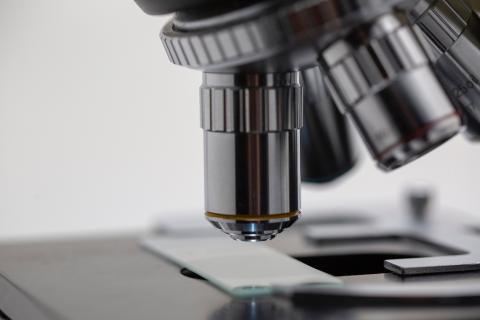In this blog, our Patient Information Writer and Researcher, Jonathan Kay, takes a closer look at the latest developments in and potential benefits of allo CAR T-cell therapy.
Chimeric Antigen Receptor (CAR) T-cell therapy is an exciting new treatment that has recently been approved for children with B-cell acute lymphoblastic leukaemia (ALL), and adults with large cell lymphoma.
It involves collecting a patient’s own immune cells, modifying their DNA, and injecting them back into the patient. These ‘auto’ CAR T-cells are more efficient at binding to and removing cancer cells. They also send out signals which attract other immune cells to the cancer cells, and tell them to rapidly reproduce. This increases the chance of all the cancer cells being removed.
CAR T-cell therapy has recently featured in the BBC2 documentary War in the Blood. The programme follows the journey of two patients as they take part in some of the very first clinical trials for this treatment.
While this treatment shows great promise for some patients after an unsuccessful stem cell transplant, it will unfortunately not be suitable for everyone. If patients have had aggressive chemotherapy following relapse, their T cell count could be too low to create a CAR T-cell therapy using their own cells. Similarly, this treatment may not be possible for patients with a blood cancer that affects their T cells.
This is why scientists are now striving to develop a new kind of CAR-T therapy, known as ‘allo’ CAR-T therapy, because it’s created using T cells from volunteer donors. This treatment will hopefully sit alongside existing auto CAR T-cell therapies and offer an alternative to patients who may not have other options available.
What are the advantages of allo CAR-T?
Creating auto CAR T-cell treatments is currently a very expensive and technically challenging process. Each treatment can only be used on one patient because it uses their own cells as the starting point. This means it’s unlikely to be used on a large scale to treat all NHS patients with blood cancer.
Using T cells from volunteer donors could mean that much larger batches of CAR T-cells can be generated at once and used to treat multiple patients. This would make the process more efficient and dramatically reduce costs. Although auto CAR T-cells need to be produced in a very short time frame, allo CAR T-cells can be made and stored in advance. This means they’re available as soon as they’re needed.
What are the challenges?
Unlike donor stem cells used for a transplant, allo CAR T-cells are intended to be an ‘off the shelf’ treatment that can be used by all patients. This means steps must be taken to make them less ‘immunogenic’, so they won’t react with the patient’s own cells and tissues. This removes the possibility of the patient developing Graft vs Host Disease (GvHD) or the treatment failing through rejection. T cells cause immune reactions by binding to foreign or infected cells using a protein on their cell surface called a T Cell Receptor (TCR). If the donor T cells are manipulated to stop them producing TCR proteins, it should prevent these complications.
Many different allo CAR T-cell therapies are currently being tested across the world, including two in the UK at the University College London Hospital. They both use different techniques to target the TCR.
UCART19 – For this CAR-T therapy, scientists have removed the TCR gene completely which stops the T cells making the receptor. It’s currently being tested in two early phase clinical trials for patients with leukaemia. These studies will help determine if the treatment can be used safely in patients to get them into remission and will record any side effects that develop.
KCAR19 – When a cell makes a new protein they need to be folded into the correct shape before they can work properly. This happens in the cell’s Golgi complex, which is a bit like a factory’s assembly line. By blocking this process, scientists can make the TCR accumulate in the Golgi, so it can’t do its job at the cell surface. Testing of KCAR19 is due to start in the next few months.
What does this mean for the future?
Clinical trials involving allo CAR T-cell therapies have only just begun, and it will be several years before they’re approved for use on the NHS. However, early data from these studies will be published sooner, which will give us an indication of how effective they are. Allo CAR T-cell therapy could prove to be an effective and cost-effective treatment for many patients who are unable to have auto CAR T-cell therapy following an unsuccessful stem cell transplant.
More information about CAR T-cell therapy is available in our blog on Kymriah, the first CAR T-cell treatment to be approved for use on the NHS.
